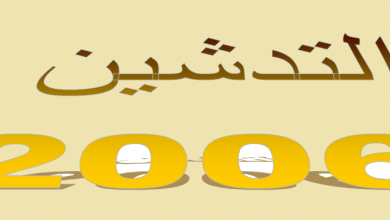Questions and Answers with Shaykh Adnan Zuhar:
Is the prayer for the Prophet ﷺ known as al-Ṣalāt al-Nāriyyah* a form of shirk (associating others with Allah)?
_________
A noble lady asked: I listened to a talk by a certain shaykh who said that the prayer for the prophet ﷺ known as al-Ṣalāt al-Nāriyyah* is a form of shirk, specifically because of the phrase “…and rain is sought through his countenance.”
We say: firstly, we need to warn the generality of Muslim men and women on the precariousness of speaking about the religion of Allah or about Allah without knowledge, especially concerning those issues before which we will be accountable to Allah on the day we meet our Lord, matters such as pronouncing judgements of kufr (disbelief), or engaging in discussions about people’s intentions or their beliefs, or engaging in any subject in which one is not competent; this includes for example attempting to research the signification of words, without having any linguistic or other qualifications in the sciences of the religion. Moreover, the layman cannot speak about these subjects claiming to be “following” a scholar; rather, the main principle is that the generality of the ummah should remain silent and leave these matters to those qualified.
Again, I strongly caution against accusing anyone of shirk or kufr based on anything they have said, even if it appears to be kufr, because this responsibility is the exclusive jurisdiction of the Muslim ruler and the judiciary. If free rein were given, the collectivity of Muslims would declare kufr on the collectivity of Muslims, simply due to ambiguities or due to the ignorance of the accuser regarding the styles of Arab speech or their modes of expression, or due to his total ignorance with respect to the speaker’s intention. This is all the more true given that the phrase being condemned by this shaykh, who clearly does not understand its reality, is pure tawhid and in conformity with the truth – in direct contradiction to what he supposes based on his reasoning.
Next, we need to step back and define the term “shirk” as it is defined by our leading scholars (imams), and that is: to believe` in a lord besides Allah the Exalted and worship it. If this description, which pertains both to the heart and external conduct, fits a person then that person is a mushrik undoubtedly. However, have you ever seen a person who prays towards the qiblah (ahl al-qiblah lit. a person of the qibla, i.e. a Muslim) and says such a thing, or gives it any consideration, or inclines towards it?
Therefore, following the likes of this shaykh in maintaining the kufr or shirk of those who recite this prayer (i.e. al-salat al-nariyya) places the layperson in a dangerous position, as it is dangerous to speak in matters without expertise or competence, or to attempt to judge what only Allah is capable of knowing.
As for this phrase which the noble lady finds problematic, it is really not something which ought to cause consternation for someone who understands the Muhammadan reality, its principle, and characteristics. We would encourage the questioner and others like her to go back and read often the literature on the special characteristics of the Prophet ﷺ (khaṣāʾiṣ) in order to learn about those characteristics, as well as the proofs of prophecy (dalāʾil) and virtues (manāqib) of our master the Messenger of Allah ﷺ which Allah graced him with and with which no one else, from the throne to the ground, has been graced with.
The meaning of “…and the rain is sought by his countenance” is that he is a means (wasīlah*) through which Allah answers the prayer for rain, and the word “countenance (or face)” here refers metaphorically to the essence of an individual or his reality. Indeed, people sought rain through the Messenger of Allah ﷺ during his lifetime. After his passing, Umar sought rain through the Messenger of Allah’s uncle, Abbas, due to the latter’s close familial relationship. This is because clinging to the branch is like clinging to the root in terms of purpose and consequences.
Using him ﷺ as a means in prayer (tawassul), both during his lifetime and after his death, is lawful according to the majority of the scholars of Islam and the leading scholarly authorities (imams) who discussed and analyzed this issue in their works, something which the shaykh in question failed to disclose. No one declared it unlawful except Ibn Taymiyya and those who follow his opinion.
The basis of this is the ḥadīth of al-Ḍarīr, narrated in al-Tirmidhī, with an authenticated (ṣaḥīḥ) chain of transmitters. I penned a short treatise on this ḥadīth with the title, “Unmasking the truth concerning the permissibility of using the master of mankind as a means in prayer” (Kashf al-lithām bi jawāz al-tawassul bi sayyid al-anām).
I will conclude this brief note by cautioning once more against declaring something to be kufr based on some ambiguous term. The true believer indicts his own intellect and understanding before tackling the beliefs of others. It is better to avoid engaging in something we are not qualified for, because doing so is dangerous, as evinced by the words of the Prophet ﷺ: “Whoever says to his brother “O Kāfir!,” then one of them has become that.”
-And ṣalāt and salām upon our master and mawlā, Muhammad, and upon his family.
-Shaykh Adnan Zuhar
-al-Ṣalāt al-Nāriyyah is a famous prayer for the Prophet ﷺ: “O Allah, send perfect ṣalāt and complete salām through the prophet through whom knots are undone, through whom calamities are lifted, through whom needs are met, and through whom wishes and beautiful endings are obtained, and through whose noble countenance rain is sought; and upon his family.” (trans.)
**tawassul refers to making a duʿāʾ by saying for example “O Allah, I ask you for this thing (rain for example), making so-and-so as my means to You.” (trans.)
#عدنان_زهار
ترجمة:
كريم منيب





